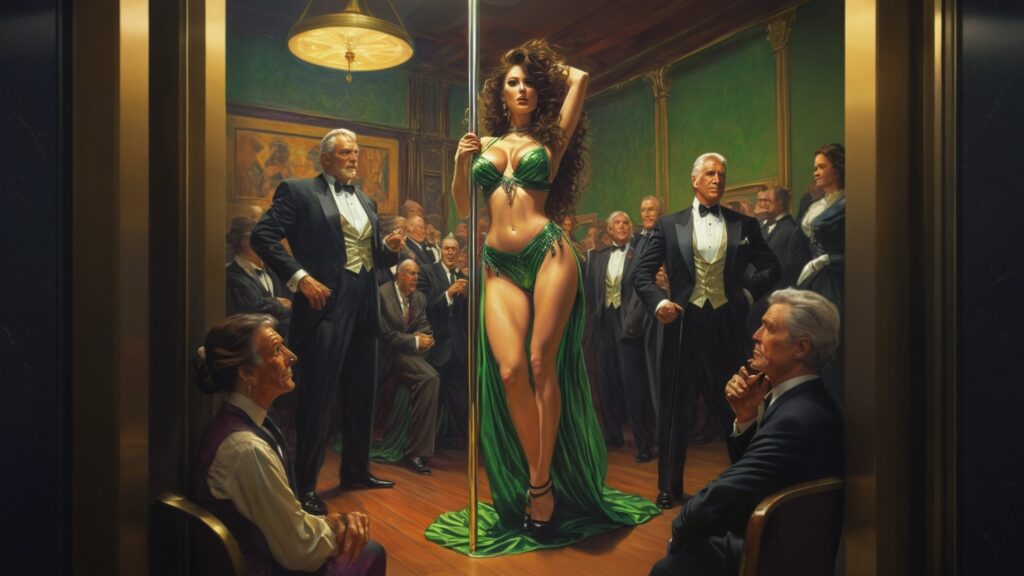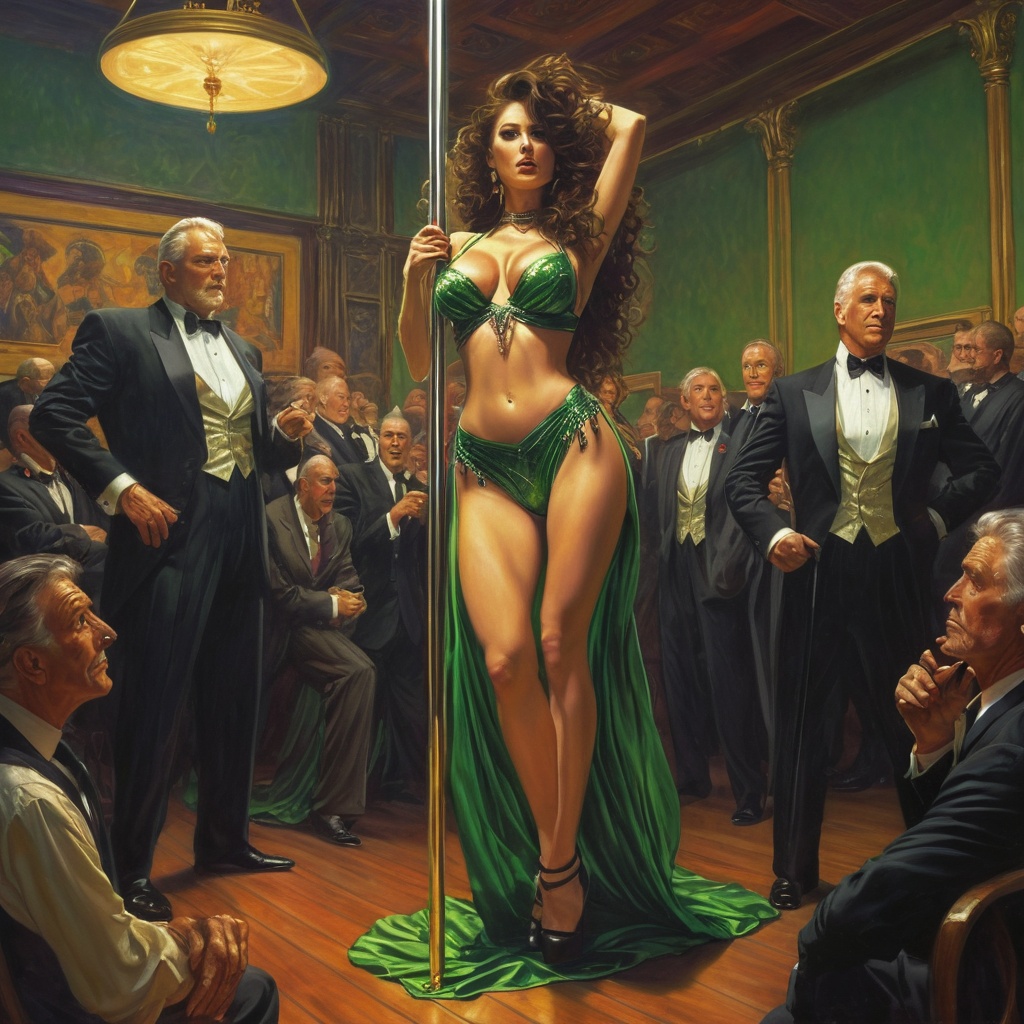While Rita and Faro fought a losing battle for their children’s survival in the brutal streets of Thundarr City, a new nightmare was erupting far to the north.
Murder Dog, the skull-faced butcher who once roamed as a wandering assassin, had declared himself King of Thundarr Forest.
With the heroes gone and the guardians disbanded, there was no one left to oppose him.
Village by village, Murder Dog and his bloodthirsty pack — an army of exiled mercenaries, deserters, and thieves — ravaged, looted, and plundered.
The once-lush and vibrant Forest, a cradle of tradition and magic, was reduced to burning ruins and charred trees.
Children were kidnapped to be raised as soldiers.
Elders were executed without trial.
Women and craftsmen were enslaved to build Murder Dog’s new “Black Fortress” at the heart of the Forest.
Rumors of his atrocities drifted even to the streets of Thundarr City, whispered by refugees before they were deported or silenced.
Murder Dog’s symbol — a bloody pawprint — was carved into every village gate as a warning: There is no more Falcon. No more Shecon. Only Murder Dog.
Meanwhile, Mr. Clown and Flint Faros cared nothing for the chaos outside their glittering city walls.
They even secretly traded weapons and supplies to Murder Dog, using the destruction of the Forest as an excuse to tighten their grip on the remaining resources of Planet Thundarr.
Faro and Rita heard of it too — and though weak, broken, and beaten down by the city, a small flicker of rage still burned in their hearts.
Would they rise again? Or was the age of heroes truly dead?
The Devil’s Deal.
As Pifo’s condition worsened, Rita found herself standing at the filthy entrance of a building she swore she’d never walk into —
the Clown Tower Medical Annex, a sinister place where only the most desperate dared seek help.
Inside, Rita was ushered into a private lounge under heavy security.
There sat Mr. Clown, leering behind his twisted porcelain mask, with Flint Faros lounging arrogantly beside him.
Without even letting her speak, Clown said in his mocking, syrupy voice,
“We know why you’re here, sweet Rita.
You want little Pifo to live, don’t you?
Well… everything has a price.”
Rita clenched her fists, biting her tongue as Clown slid a contract across the glass table.
The terms were brutal:
- Pifo would receive the rare, life-saving treatment immediately.
- But in return, Rita would become Clown’s personal servant — a private entertainer — forced to perform at his secret gatherings for the elite and corrupted of Thundarr City.
- Worse yet, she would have no right to refuse any demand he made thereafter, bound by blood contract enforced by the D.E.C.’s hidden courts.
Tears welled up in Rita’s eyes.
She thought of Faro, sick and frail.
She thought of Sulari, starving.
And she looked at the tiny, weak Pifo, coughing and barely breathing, clinging to life.
Rita’s soul screamed no… but her hand, trembling, reached for the pen.
Clown chuckled darkly as she signed the paper, sealing herself into a darkness deeper than she had ever known.
Flint raised a toast with his beer can, laughing,
“Welcome to the real Thundarr, sweetheart.”

Three days after Rita signed the cursed contract, Pifo’s health dramatically improved.
He was rushed into a secret treatment facility, pumped full of illegal medicines smuggled in from Snow Land.
For the first time in weeks, Rita held her baby boy as his fever broke and he smiled weakly in her arms.
But the cost of that smile weighed like a mountain on her back.
Every night now, Rita was summoned to Clown Tower.
She put on degrading costumes, forced to dance and perform humiliating acts for the city’s darkest figures — corrupt generals, politicians, black-market lords.
They cheered, leered, and sometimes demanded more.
Clown watched from his throne, savoring her slow destruction.
Rita lied to Faro about where she went at night, telling him she was “working extra cleaning jobs” to pay for food.
But Faro — though weak and ill — knew something was wrong.
He could smell strange perfumes on her clothes.
He noticed the haunted look in her once-bright green eyes.
One night, Faro, determined to find the truth, followed Rita as she slipped away under the cracked streetlights of Southbank.
He trailed her through the alleys until he saw it:
Rita, stepping into a black security van that took her to Clown Tower, guarded by Flint’s mercenaries.
He waited… waited…
Then, just before dawn, he saw her return — her head bowed, her steps stumbling, her soul seemingly shattered.
Faro’s heart ripped apart.
He staggered back home alone, coughing blood into his shirt, tears burning his eyes.
“She sold herself…
for me.
For Pifo.”
Faro collapsed on the floor of their filthy apartment, unable to breathe, writhing in grief, betrayal, guilt, and helpless love.
Bad Smoke and Sad Flowers.
The next morning, Rita returned home just before sunrise.
Her steps were slow, her body trembling under the oversized coat she used to hide herself.
Her eyes, once fierce and defiant, were now hollow — like glass about to shatter.
She kissed little Pifo and Sulari on their foreheads and quietly began cooking a small breakfast of stale bread and canned beans.
Faro lay still on his mattress, pretending to sleep, his back turned toward her.
He watched her out of the corner of his eye, seeing the shaking in her hands, the silent sobs that made her shoulders quake when she thought no one was watching.
When the children woke, Rita smiled.
A broken, forced smile.
The kind of smile that hurt more than any scream.
She braided Sulari’s hair, hugged Pifo tightly, whispering promises that she would always protect them.
But Faro could feel it —
a deepening chasm growing inside their little family.
Days turned into weeks.
Rita kept disappearing at night, always returning with more food, better medicine, even warm clothes for the coming cold season.
Neighbors began to whisper, even among the desperate beggars of Southbank.
They looked at Rita with a mix of jealousy and contempt.
Meanwhile, Faro’s own condition worsened.
The hours plugged into the rusty artificial liver machines at the public clinic drained what little strength he had left.
He was wasting away.
Some nights, he coughed so hard he thought his ribs would snap.
Other nights, he stared blankly at the cracked ceiling, wondering if death would be kinder than this endless humiliation.
Still, he said nothing.
He bottled all the hurt inside.
Until one evening, when Pifo’s little hands tugged on Faro’s sleeve and asked:
“Papa… why does Mama always smell like… bad smoke and sad flowers?”
Faro froze.
His mouth dried up.
He had no answer.
Only more pain.
He hugged Pifo tightly and wept silently, hiding his face against his son’s soft hair.
He knew the day was coming.
The day when he could no longer pretend.
The day when everything would break.

